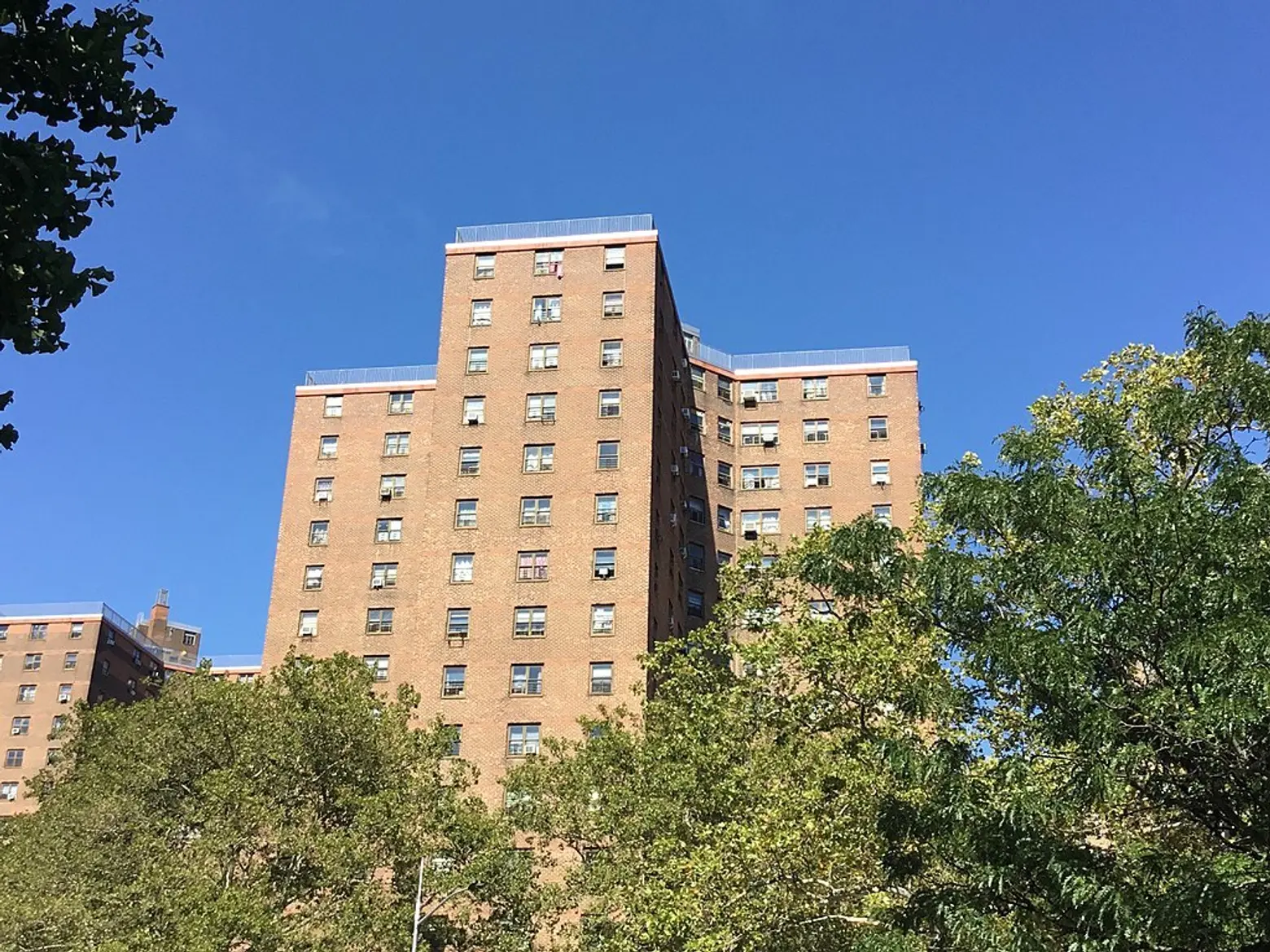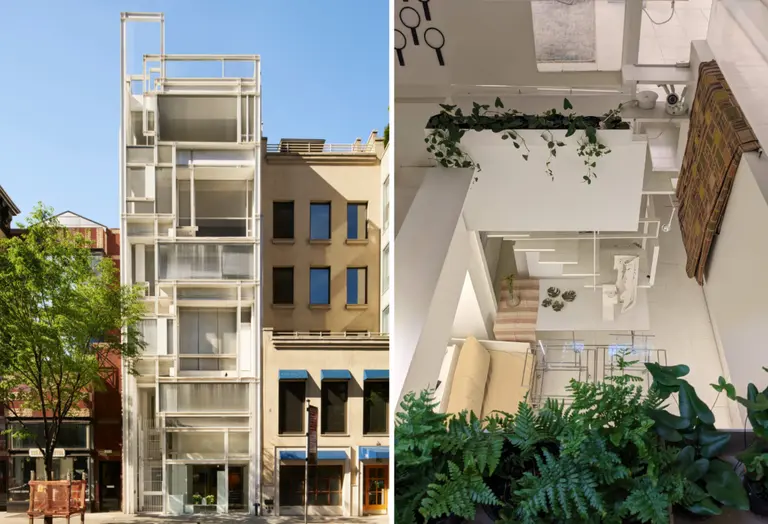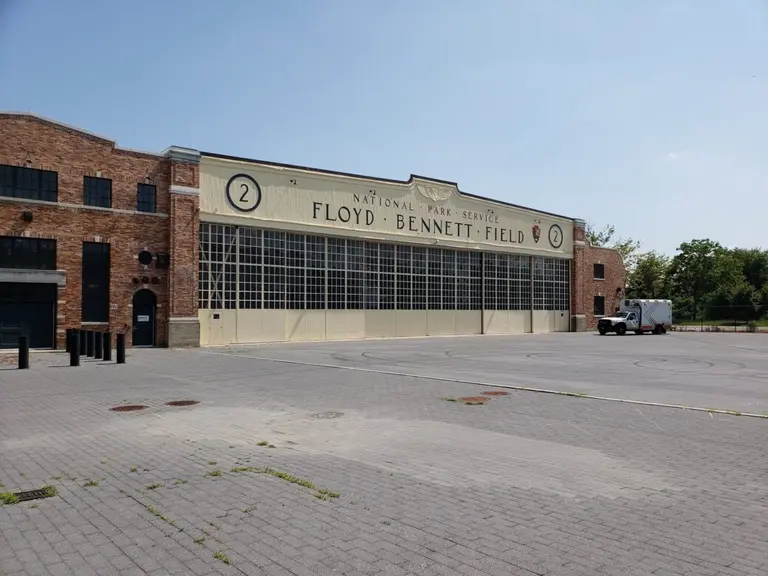NYC Council Speaker revives plan to build new homes on open NYCHA land

NYCHA LaGuardia Houses; Photo via Wikimedia
A New York City official is reviving a plan to turn the green spaces on public housing complexes into homes. In her State of the City address on Wednesday, City Council Speaker Adrienne Adams proposed the construction of new apartment buildings on existing open spaces, known as “infill development,” within New York City Housing Authority properties. Adams said her proposal would help address the city’s housing crisis and provide current public housing tenants with an opportunity to relocate into upgraded, modern housing units.
“Today, I am announcing an idea that could improve residents’ living conditions while increasing housing supply by constructing new public housing apartments for existing residents,” Adams said during her address. “It would utilize unused, open space on NYCHA land to develop new, higher-density buildings that residents are moved into directly from their existing units.”
The concept has been proposed twice before by former Mayors Michael Bloomberg and Bill de Blasio, but both times faced intense opposition from NYCHA residents and local elected officials. In both plans, the new housing would be constructed by private developers on open spaces like playgrounds, basketball courts, and parking lots within NYCHA developments.
Adams’ plan does not just include the expansion of supportive housing but also the creation of new senior housing, mixed-income housing, and new market-rate housing all located within the same complex. The inclusion of market-rate homes would help support the costs of new public housing, according to THE CITY. These market-rate homes would be managed by a private operator, while the supportive homes would be managed by the city.
In 2013, Bloomberg announced a plan to raise billions of dollars by leasing NYCHA land to developers to build 4,000 new units, 80 percent of which would be at market-rate, and 20 percent affordable. Christine Quinn, speaker of the City Council at the time, sued the former Mayor to halt the plans.
When de Blasio took office, he attempted to revive the plan and pledged that half of the units would be market-rate and the other half would be below market rate. In one of the NYCHA developments he proposed the plan be implemented, former Manhattan Borough President Gale Brewer sued to halt the project, and in 2019, de Blasio abandoned the plan.
The speaker’s plan would adhere to the regulations set by the Faircloth Amendment, a federal law that sets a cap on the number of public housing units at the amount that existed as of October 1, 1999. NYCHA currently has fewer public housing units than it had in 1999, so the city can build new units up to that cap.
Before the plan moves forward, it would have to secure funding from sources on the federal, state, and city levels. It would require a significant reversal of the federal government’s declining investment in the traditional public housing program, according to the New York Times.
The plan would be piloted at one NYCHA development which tenants would help choose.
RELATED:
Interested in similar content?
Leave a reply
Your email address will not be published.





























The purpose of building NYCHA developments at their inception, like the La Guardia Houses, was to take New Yorkers out of blocks upon blocks of 6 story tenements. The concept included open spaces between buildings with walkways, lawns, seating areas, playgrounds, & parking lots. To consider filling in these green open spaces with more residential buildings crowded in between existing buildings, diminishing the open spaces defeats one of the most positive initiatives in the development of NYCHA complexes since 1938. I grew up in a NYCHA development over 50 years ago & I had the benefit of playing outdoors in an environment that wasn’t relegated to a sidewalk in front of an apartment building. The playground & park like settings were right outside our door. Filling in these open spaces needs to be studied seriously & their impact on the quality of life of current & future NYCHA tenants.